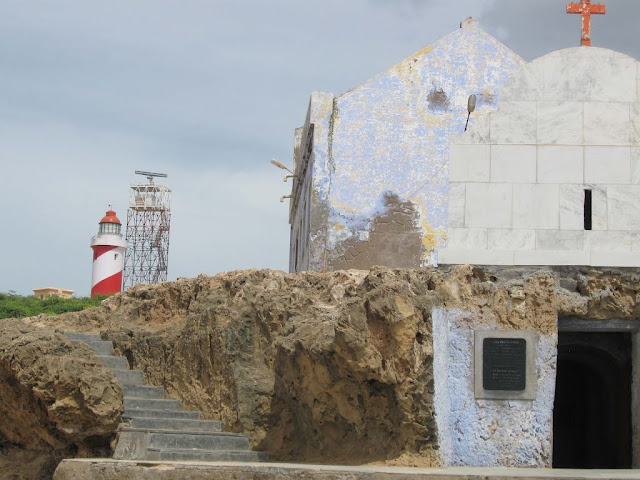Xavier Cave (Xavier Grotto), Manappad,
Thoothukudi
Xavier
Cave is named after Saint Francis Xavier, who once lived and preached
in this cave. According to local Church history the Jesuit missioner lived
between 1542 and 1544 in a grotto on the rocky side of a hill in Manappad. He
was preaching to the Parava people, a fishing community which had converted to
Christianity in 1532. The Saint realized that the Parava did not know much
about their new religion, because they had no one to teach them. Actually they
had converted to seek protection by the Portuguese against Arab pearl traders.
The
small cave is located only five meters from the shore, at the tip of a cape.
Pounding waves sometimes flood the cave; sometimes the water in the cave is
ankle deep. The cave is transformed into a sort of chapel, with a white
baptismal tub made of stone and a small statue of the saint standing on an
altar. Inside this cave (which is actually Saivite cave used by Hindu hermits
in ancient times) is a small well dug by the very hands of St. Francis Xavier
during his sojourn preaching the word of God to the Parava makkal.
An
opening in the ceiling allows people to draw water using a bucket and rope
without entering the cave. Located only 10m from the sea the well contains
sweet water as filtered mineral water, whereas the wells in Manappad village
are brackish and salty. Until a few years ago, the local priests used to offer
Mass in the cave. Then a chapel was built above the cave and the mass is now
held there. A granite slab at the cave entrance has an inscription commemorating
the history of the cave.
The cave
draws thousands of Catholics and Hindus every year. It has become a sort of unofficial
pilgrimage destination.














